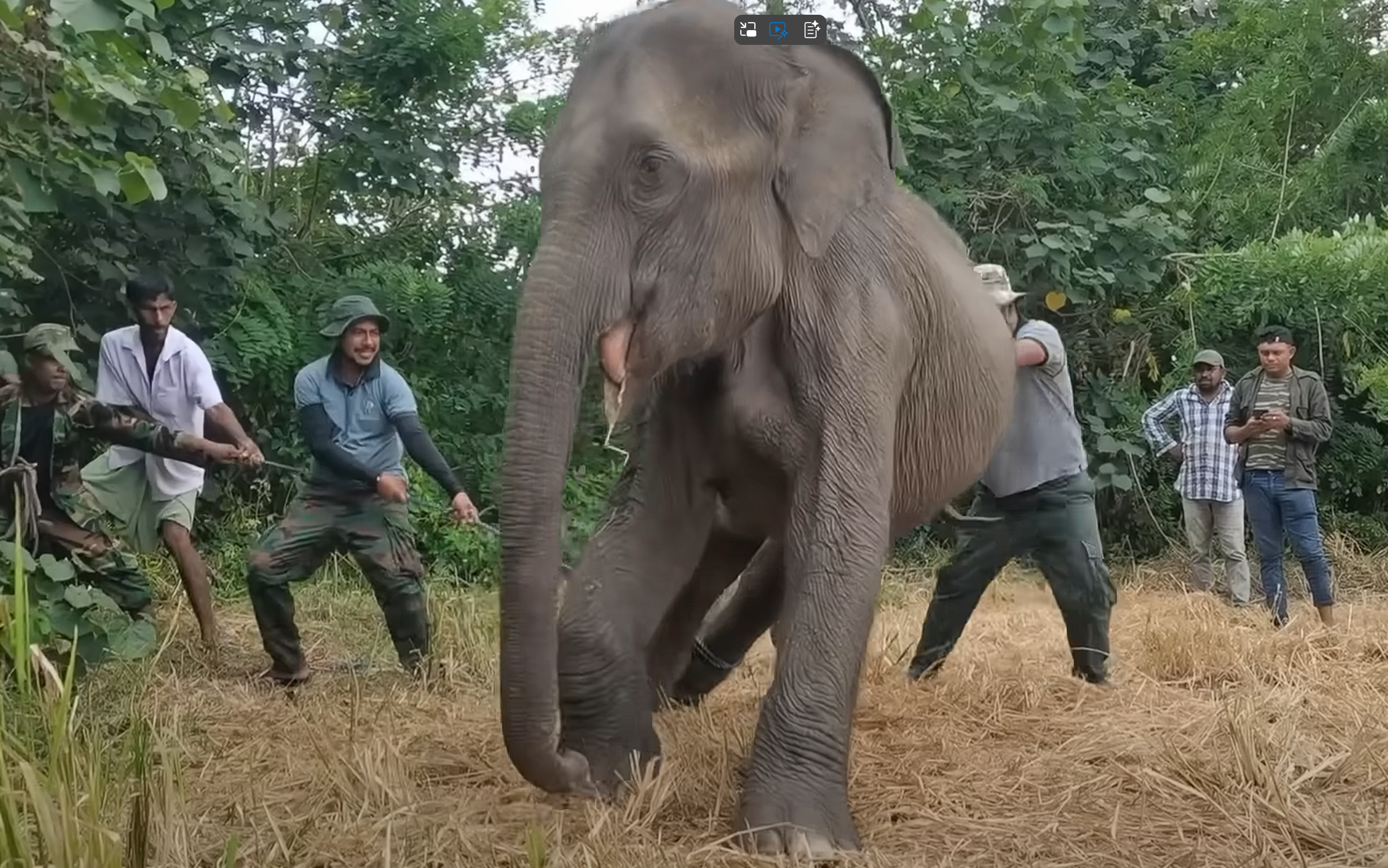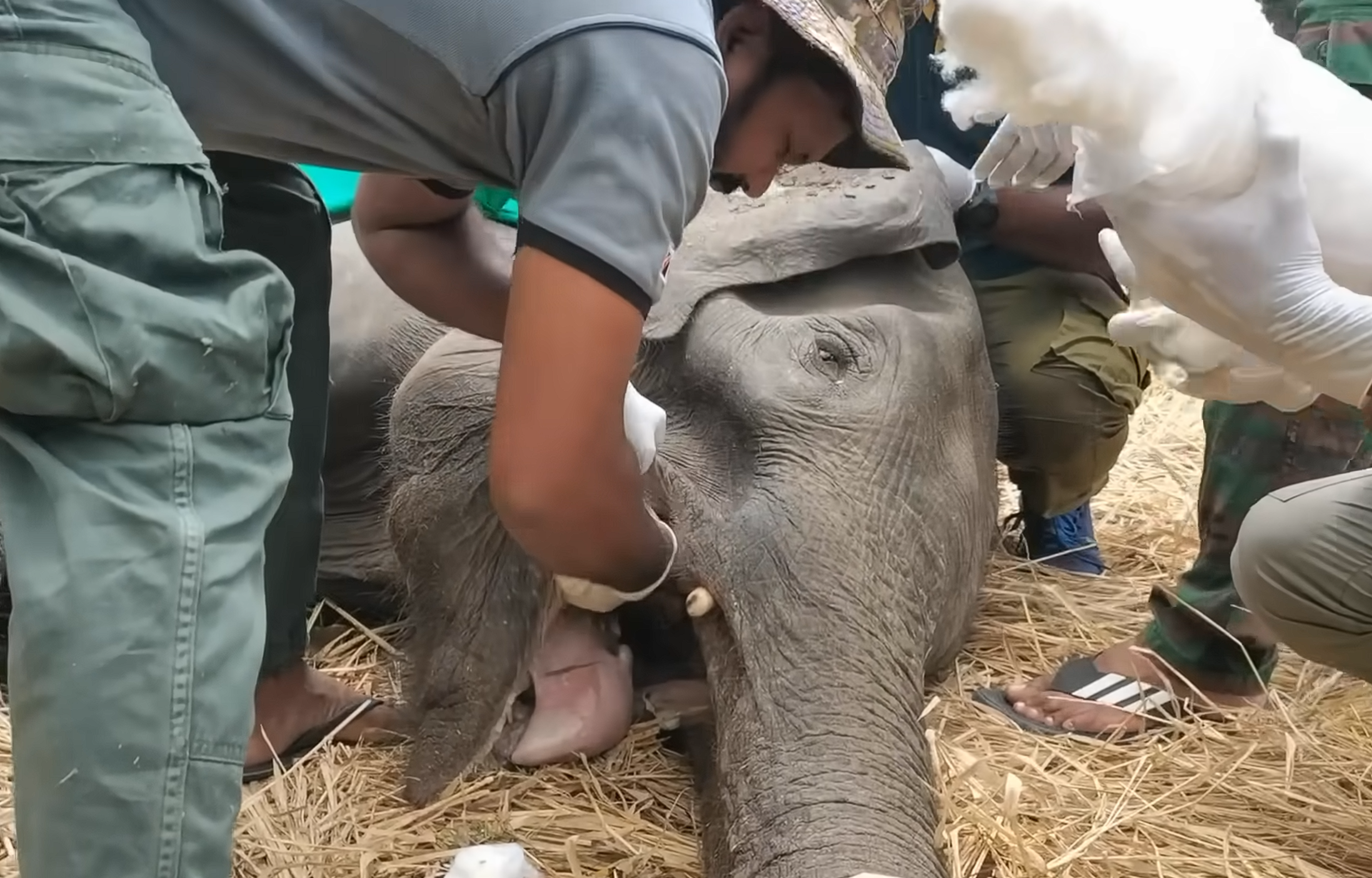Wildlife officials in Galgamuwa recently received alarming reports about a baby elephant whose mouth had been severely injured by explosives. The incident underscores the ongoing challenges of human-wildlife conflict in regions where elephants often enter farmland in search of food. Explosives, sometimes hidden in fruits or vegetables to deter animals, can cause catastrophic injuries, leaving elephants unable to feed or drink. Such practices highlight the urgent need for humane and effective methods to manage human-wildlife interactions.

The Nikaweratiya Wildlife Veterinary Team responded promptly, providing immediate medical care to stabilize the injured elephant. Despite their swift intervention, the baby elephant remains in critical condition, unable to eat or drink due to the severity of its injuries. Veterinary staff are closely monitoring the animal, providing supportive care and treatment aimed at preventing infection and mitigating pain. Their rapid response demonstrates the importance of specialized wildlife veterinary teams in responding to emergencies.

Experts note that incidents like this are part of a broader pattern of human-wildlife conflict, particularly in areas where expanding agricultural activity encroaches on elephant habitats. Farmers sometimes resort to dangerous deterrents, including explosives, to protect crops, unaware of the potential for severe injury or death to wildlife. These tragic events highlight the urgent need for education, awareness, and the adoption of non-lethal alternatives that protect both human livelihoods and wildlife.
Authorities and conservationists are calling for stronger enforcement of wildlife protection laws and stricter penalties for the use of explosives against animals. They also emphasize the importance of community engagement, encouraging local populations to adopt safe deterrent strategies, such as early-warning systems, electric fencing, or alternative crops that are less attractive to elephants. Collaborative efforts between government agencies, local communities, and NGOs are critical to reducing conflict and preventing future tragedies.
The incident in Galgamuwa serves as a stark reminder of the fragility of wildlife in the face of human activity. Protecting elephants and other endangered species requires coordinated action, proactive policy enforcement, and widespread public awareness. Ensuring the safety of these iconic animals is not only an ethical responsibility but also essential for maintaining ecological balance and biodiversity in affected regions.


